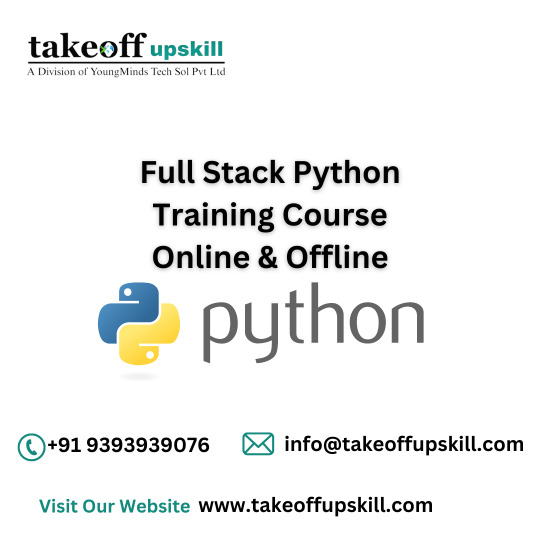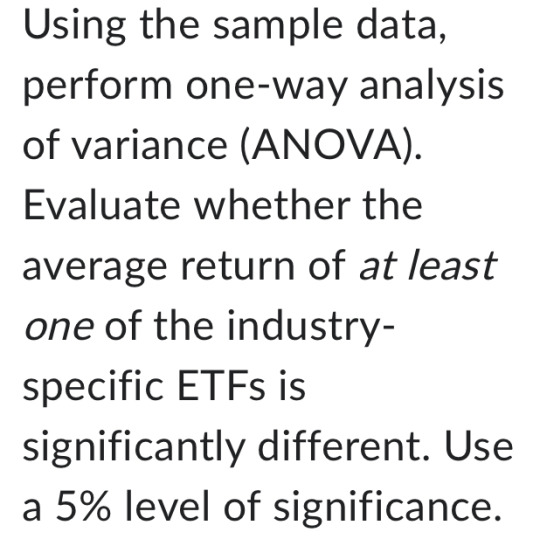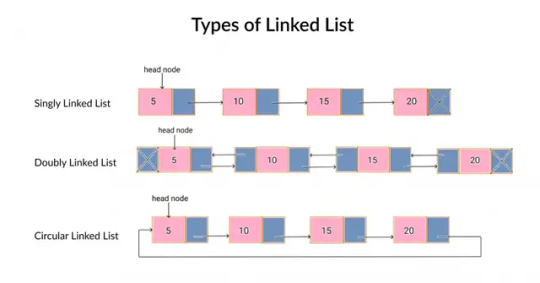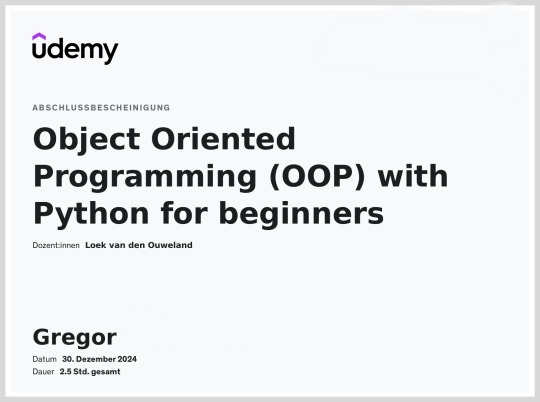#Python Course program
Explore tagged Tumblr posts
Text

Full Stack Python Training Course Online & Offline
Learn Full Stack Python Training Course Online & Offline to Build, get train how to Deploy a Python Applications and Python script. Takeoff upskill provide training in Python programming. Python Full Stack Developer Course skill, Training along with Certification in Tirupati includes In-Demand skills & Tools with Real-Time Projects Career & Job Assessment for Student. Explore top Python Training courses and programs in Full Stack python. Strengthen your career skills with professional. Takeoff upskill offers a clear full stack python developer project course in Tirupati, which enable you to do the best in each and every sector. Hurryup! to Learn Full Stack Python Course program online/offline & get a certificate on course from Takeoff upskill. Unseal Your Future career with takeoff upskill Python Full Stack Developer Course.
0 notes
Text

#obey me#obey me leviathan#obey me levi#henry 1.0#traditional art#styx scribbles#this was based on that introductory python programming course meme even tho the snakes in that meme are not pythons#and i have no idea what snake henry is lol
66 notes
·
View notes
Text
going into my final week of classes and we always have one last week after the final paper (so the professors have time for grading) where typically the only work we have is one last discussion post.
usually, this post is pretty simple and light (to go easy on us after the final). my ethics class is like “summarize your conclusions from your final paper! :)” and my communications class is like “tell the class about your career goals! :)”
meanwhile, statistics…

#which is very easy - it’s just FUNNY#you thought we were done learning new material after the final? THINK AGAIN!!!!!!!!#READ THE PYTHON SCRIPT AND WEEP#no but stats was my favorite class this semester…#i still wanna take stats II but i haven’t decided for sure yet#it’s a lot of work but it’s very straightforward work#as opposed to my environmental and communications courses that involve a lot of opinion#which is fine but can be really tiring when the thing they want my opinion about is stupid or repetitive#like. FOUR courses made me take that one environmental footprint calculator quiz…#FOUR SEPARATE COURSES#and it’s like. i’m not saying it’s not important - but i GET IT!!!!!!!#at this point it’s just a waste of my time - teach me something i don’t already know!#i definitely should have taken a different online program but that’s beside the point#it’ll even out once i get my master’s#and i’m ultimately happy to have had the ‘broader’ education of environmental science (with a communication minor)#bc i think that’ll serve me better in management later in my career#even if it makes early career stuff more difficult
10 notes
·
View notes
Text
SQL Fundamentals #1: SQL Data Definition
Last year in college , I had the opportunity to dive deep into SQL. The course was made even more exciting by an amazing instructor . Fast forward to today, and I regularly use SQL in my backend development work with PHP. Today, I felt the need to refresh my SQL knowledge a bit, and that's why I've put together three posts aimed at helping beginners grasp the fundamentals of SQL.
Understanding Relational Databases
Let's Begin with the Basics: What Is a Database?
Simply put, a database is like a digital warehouse where you store large amounts of data. When you work on projects that involve data, you need a place to keep that data organized and accessible, and that's where databases come into play.
Exploring Different Types of Databases
When it comes to databases, there are two primary types to consider: relational and non-relational.
Relational Databases: Structured Like Tables
Think of a relational database as a collection of neatly organized tables, somewhat like rows and columns in an Excel spreadsheet. Each table represents a specific type of information, and these tables are interconnected through shared attributes. It's similar to a well-organized library catalog where you can find books by author, title, or genre.
Key Points:
Tables with rows and columns.
Data is neatly structured, much like a library catalog.
You use a structured query language (SQL) to interact with it.
Ideal for handling structured data with complex relationships.
Non-Relational Databases: Flexibility in Containers
Now, imagine a non-relational database as a collection of flexible containers, more like bins or boxes. Each container holds data, but they don't have to adhere to a fixed format. It's like managing a diverse collection of items in various boxes without strict rules. This flexibility is incredibly useful when dealing with unstructured or rapidly changing data, like social media posts or sensor readings.
Key Points:
Data can be stored in diverse formats.
There's no rigid structure; adaptability is the name of the game.
Non-relational databases (often called NoSQL databases) are commonly used.
Ideal for handling unstructured or dynamic data.
Now, Let's Dive into SQL:

SQL is a :
Data Definition language ( what todays post is all about )
Data Manipulation language
Data Query language
Task: Building and Interacting with a Bookstore Database
Setting Up the Database
Our first step in creating a bookstore database is to establish it. You can achieve this with a straightforward SQL command:
CREATE DATABASE bookstoreDB;
SQL Data Definition
As the name suggests, this step is all about defining your tables. By the end of this phase, your database and the tables within it are created and ready for action.

1 - Introducing the 'Books' Table
A bookstore is all about its collection of books, so our 'bookstoreDB' needs a place to store them. We'll call this place the 'books' table. Here's how you create it:
CREATE TABLE books ( -- Don't worry, we'll fill this in soon! );
Now, each book has its own set of unique details, including titles, authors, genres, publication years, and prices. These details will become the columns in our 'books' table, ensuring that every book can be fully described.
Now that we have the plan, let's create our 'books' table with all these attributes:
CREATE TABLE books ( title VARCHAR(40), author VARCHAR(40), genre VARCHAR(40), publishedYear DATE, price INT(10) );
With this structure in place, our bookstore database is ready to house a world of books.
2 - Making Changes to the Table
Sometimes, you might need to modify a table you've created in your database. Whether it's correcting an error during table creation, renaming the table, or adding/removing columns, these changes are made using the 'ALTER TABLE' command.
For instance, if you want to rename your 'books' table:
ALTER TABLE books RENAME TO books_table;
If you want to add a new column:
ALTER TABLE books ADD COLUMN description VARCHAR(100);
Or, if you need to delete a column:
ALTER TABLE books DROP COLUMN title;
3 - Dropping the Table
Finally, if you ever want to remove a table you've created in your database, you can do so using the 'DROP TABLE' command:
DROP TABLE books;
To keep this post concise, our next post will delve into the second step, which involves data manipulation. Once our bookstore database is up and running with its tables, we'll explore how to modify and enrich it with new information and data. Stay tuned ...
Part2
#code#codeblr#java development company#python#studyblr#progblr#programming#comp sci#web design#web developers#web development#website design#webdev#website#tech#learn to code#sql#sqlserver#sql course#data#datascience#backend
112 notes
·
View notes
Text
Python is such a cool name for something that’s actually terrible and mean
9 notes
·
View notes
Text
Linked List in Python
A linked list is a dynamic data structure used to store elements in a linear order, where each element (called a node) points to the next. Unlike Python lists that use contiguous memory, linked lists offer flexibility in memory allocation, making them ideal for situations where the size of the data isn’t fixed or changes frequently.

In Python, linked lists aren’t built-in but can be implemented using classes. Each node contains two parts: the data and a reference to the next node. The list is managed using a class that tracks the starting node, known as the head.
Node Structure: Contains data and next (pointer to the next node).
Types:
Singly Linked List
Doubly Linked List
Circular Linked List
Operations: Insertion, deletion, and traversal.
Advantages:
Dynamic size
Efficient insertions/deletions
Disadvantages:
Slower access (no random indexing)
Extra memory for pointers
Want to master linked lists and other data structures in Python? PrepInsta has you covered with beginner-friendly explanations and practice problems.
Explore Linked Lists with PrepInsta
2 notes
·
View notes
Text
https://www.excellencetechnology.in/chandigarh-center/
#animation#programming#web development#web design#artificial intelligence#machinelearning#data analytics#datascience#python#javaprogramming#java course#digital marketing#seo
2 notes
·
View notes
Text
Python coding tips (visual novel)
I need help with visual novel coding in ren'py, its so confusing aaaaa
11 notes
·
View notes
Text
Started a course I found for learning programming earlier and did you guys know. It's all math
#i was so caught up in the delight of learning computer program i forgot for a moment that computers were all math#dhdDNDJA#I'm gonna try though. the MIT open source whatever it is has a beginner's programming course using python 3 so 🤷♂️ why not
3 notes
·
View notes
Text
Why Python Will Thrive: Future Trends and Applications
Python has already made a significant impact in the tech world, and its trajectory for the future is even more promising. From its simplicity and versatility to its widespread use in cutting-edge technologies, Python is expected to continue thriving in the coming years. Considering the kind support of Python Course in Chennai Whatever your level of experience or reason for switching from another programming language, learning Python gets much more fun.

Let's explore why Python will remain at the forefront of software development and what trends and applications will contribute to its ongoing dominance.
1. Artificial Intelligence and Machine Learning
Python is already the go-to language for AI and machine learning, and its role in these fields is set to expand further. With powerful libraries such as TensorFlow, PyTorch, and Scikit-learn, Python simplifies the development of machine learning models and artificial intelligence applications. As more industries integrate AI for automation, personalization, and predictive analytics, Python will remain a core language for developing intelligent systems.
2. Data Science and Big Data
Data science is one of the most significant areas where Python has excelled. Libraries like Pandas, NumPy, and Matplotlib make data manipulation and visualization simple and efficient. As companies and organizations continue to generate and analyze vast amounts of data, Python’s ability to process, clean, and visualize big data will only become more critical. Additionally, Python’s compatibility with big data platforms like Hadoop and Apache Spark ensures that it will remain a major player in data-driven decision-making.
3. Web Development
Python’s role in web development is growing thanks to frameworks like Django and Flask, which provide robust, scalable, and secure solutions for building web applications. With the increasing demand for interactive websites and APIs, Python is well-positioned to continue serving as a top language for backend development. Its integration with cloud computing platforms will also fuel its growth in building modern web applications that scale efficiently.
4. Automation and Scripting
Automation is another area where Python excels. Developers use Python to automate tasks ranging from system administration to testing and deployment. With the rise of DevOps practices and the growing demand for workflow automation, Python’s role in streamlining repetitive processes will continue to grow. Businesses across industries will rely on Python to boost productivity, reduce errors, and optimize performance. With the aid of Best Online Training & Placement Programs, which offer comprehensive training and job placement support to anyone looking to develop their talents, it’s easier to learn this tool and advance your career.

5. Cybersecurity and Ethical Hacking
With cyber threats becoming increasingly sophisticated, cybersecurity is a critical concern for businesses worldwide. Python is widely used for penetration testing, vulnerability scanning, and threat detection due to its simplicity and effectiveness. Libraries like Scapy and PyCrypto make Python an excellent choice for ethical hacking and security professionals. As the need for robust cybersecurity measures increases, Python’s role in safeguarding digital assets will continue to thrive.
6. Internet of Things (IoT)
Python’s compatibility with microcontrollers and embedded systems makes it a strong contender in the growing field of IoT. Frameworks like MicroPython and CircuitPython enable developers to build IoT applications efficiently, whether for home automation, smart cities, or industrial systems. As the number of connected devices continues to rise, Python will remain a dominant language for creating scalable and reliable IoT solutions.
7. Cloud Computing and Serverless Architectures
The rise of cloud computing and serverless architectures has created new opportunities for Python. Cloud platforms like AWS, Google Cloud, and Microsoft Azure all support Python, allowing developers to build scalable and cost-efficient applications. With its flexibility and integration capabilities, Python is perfectly suited for developing cloud-based applications, serverless functions, and microservices.
8. Gaming and Virtual Reality
Python has long been used in game development, with libraries such as Pygame offering simple tools to create 2D games. However, as gaming and virtual reality (VR) technologies evolve, Python’s role in developing immersive experiences will grow. The language’s ease of use and integration with game engines will make it a popular choice for building gaming platforms, VR applications, and simulations.
9. Expanding Job Market
As Python’s applications continue to grow, so does the demand for Python developers. From startups to tech giants like Google, Facebook, and Amazon, companies across industries are seeking professionals who are proficient in Python. The increasing adoption of Python in various fields, including data science, AI, cybersecurity, and cloud computing, ensures a thriving job market for Python developers in the future.
10. Constant Evolution and Community Support
Python’s open-source nature means that it’s constantly evolving with new libraries, frameworks, and features. Its vibrant community of developers contributes to its growth and ensures that Python stays relevant to emerging trends and technologies. Whether it’s a new tool for AI or a breakthrough in web development, Python’s community is always working to improve the language and make it more efficient for developers.
Conclusion
Python’s future is bright, with its presence continuing to grow in AI, data science, automation, web development, and beyond. As industries become increasingly data-driven, automated, and connected, Python’s simplicity, versatility, and strong community support make it an ideal choice for developers. Whether you are a beginner looking to start your coding journey or a seasoned professional exploring new career opportunities, learning Python offers long-term benefits in a rapidly evolving tech landscape.
#python course#python training#python#technology#tech#python programming#python online training#python online course#python online classes#python certification
2 notes
·
View notes
Text
Small Basic meets Python - #30 Sorting ...
youtube
Post #244: YouTube, Socratica, Python Tutorial, #30 Sorting in Python, 2025.
#coding#programming#programmieren#education#python tutorial#python coding#python course#python for ever#socratica#youtube#learn to code
5 notes
·
View notes
Text
well. woke up. too worried to go back to sleep. too sleepy to do anything else. we'll be here i guess hgghf
#maybe we should finish those questions or something. or prep for school. what's there to prep?#we should make a checklist. of course you'd say that. i'm right though.#sigh okay maestro have at it then.#certainly. please make sure we have these items: wallet. laptop and charger. phone and charger. tablet and tablet pen. earbuds. water.#brush your teeth and hair. what outfit are we wearing?#bluebird shirt? and the comfy pants. boots. don't know if we're gonna need the jacket but deb's gonna want it when he's up.#we'll take the subway and walk to the cafe we scouted out. we can order the waffles they have since yearning wants them.#we'll sit and. either draw or play more rhythm game depending. until adequate time has passed and we can go home.#if anyone asks the classes we took today were pre calc and python programing. maybe another one i'll think of somethin.#if at any point they email us back we HAVE to respond asap. this HAS to go through we cannot pretend to go to school forever.#blender is good sure but there's only so far we can stretch this lie.#anyway besides all that lets enjoy the day gang!! we really havent gone out in a while huh? we're getting waffles at a cafe!! :D!!#maybe a slushie for home? no we still have ice cream. finish the home treats first then we'll talk. alright fine :/#whatever. anyway our alarm rings at 6:30 and we're still not tired so let's do something maybe?
5 notes
·
View notes
Text
Python Tutorial Notes

This tutorial teaches you the fundamentals of Python programming. Python is a versatile language used for various tasks, including machine learning, data science, and web development. Python can also be used for automation, saving time and increasing productivity.
Get Now form here
#python#course#python course#python programming#python training#programming#python code#computerscience#coding#coquette
4 notes
·
View notes
Text
My latest certificate from Udemy ...

Post #156: Udemy, Loek van den Ouweland, Objekt Oriented Programming (OOP) with Python for beginners, 2025.
#programming#education#coding#learning#coding is fun#i love coding#i love python#i love programming#programming language#udemy online courses#udemy
6 notes
·
View notes
Text
What Are the Qualifications for a Data Scientist?
In today's data-driven world, the role of a data scientist has become one of the most coveted career paths. With businesses relying on data for decision-making, understanding customer behavior, and improving products, the demand for skilled professionals who can analyze, interpret, and extract value from data is at an all-time high. If you're wondering what qualifications are needed to become a successful data scientist, how DataCouncil can help you get there, and why a data science course in Pune is a great option, this blog has the answers.
The Key Qualifications for a Data Scientist
To succeed as a data scientist, a mix of technical skills, education, and hands-on experience is essential. Here are the core qualifications required:
1. Educational Background
A strong foundation in mathematics, statistics, or computer science is typically expected. Most data scientists hold at least a bachelor’s degree in one of these fields, with many pursuing higher education such as a master's or a Ph.D. A data science course in Pune with DataCouncil can bridge this gap, offering the academic and practical knowledge required for a strong start in the industry.
2. Proficiency in Programming Languages
Programming is at the heart of data science. You need to be comfortable with languages like Python, R, and SQL, which are widely used for data analysis, machine learning, and database management. A comprehensive data science course in Pune will teach these programming skills from scratch, ensuring you become proficient in coding for data science tasks.
3. Understanding of Machine Learning
Data scientists must have a solid grasp of machine learning techniques and algorithms such as regression, clustering, and decision trees. By enrolling in a DataCouncil course, you'll learn how to implement machine learning models to analyze data and make predictions, an essential qualification for landing a data science job.
4. Data Wrangling Skills
Raw data is often messy and unstructured, and a good data scientist needs to be adept at cleaning and processing data before it can be analyzed. DataCouncil's data science course in Pune includes practical training in tools like Pandas and Numpy for effective data wrangling, helping you develop a strong skill set in this critical area.
5. Statistical Knowledge
Statistical analysis forms the backbone of data science. Knowledge of probability, hypothesis testing, and statistical modeling allows data scientists to draw meaningful insights from data. A structured data science course in Pune offers the theoretical and practical aspects of statistics required to excel.
6. Communication and Data Visualization Skills
Being able to explain your findings in a clear and concise manner is crucial. Data scientists often need to communicate with non-technical stakeholders, making tools like Tableau, Power BI, and Matplotlib essential for creating insightful visualizations. DataCouncil’s data science course in Pune includes modules on data visualization, which can help you present data in a way that’s easy to understand.
7. Domain Knowledge
Apart from technical skills, understanding the industry you work in is a major asset. Whether it’s healthcare, finance, or e-commerce, knowing how data applies within your industry will set you apart from the competition. DataCouncil's data science course in Pune is designed to offer case studies from multiple industries, helping students gain domain-specific insights.
Why Choose DataCouncil for a Data Science Course in Pune?
If you're looking to build a successful career as a data scientist, enrolling in a data science course in Pune with DataCouncil can be your first step toward reaching your goals. Here’s why DataCouncil is the ideal choice:
Comprehensive Curriculum: The course covers everything from the basics of data science to advanced machine learning techniques.
Hands-On Projects: You'll work on real-world projects that mimic the challenges faced by data scientists in various industries.
Experienced Faculty: Learn from industry professionals who have years of experience in data science and analytics.
100% Placement Support: DataCouncil provides job assistance to help you land a data science job in Pune or anywhere else, making it a great investment in your future.
Flexible Learning Options: With both weekday and weekend batches, DataCouncil ensures that you can learn at your own pace without compromising your current commitments.
Conclusion
Becoming a data scientist requires a combination of technical expertise, analytical skills, and industry knowledge. By enrolling in a data science course in Pune with DataCouncil, you can gain all the qualifications you need to thrive in this exciting field. Whether you're a fresher looking to start your career or a professional wanting to upskill, this course will equip you with the knowledge, skills, and practical experience to succeed as a data scientist.
Explore DataCouncil’s offerings today and take the first step toward unlocking a rewarding career in data science! Looking for the best data science course in Pune? DataCouncil offers comprehensive data science classes in Pune, designed to equip you with the skills to excel in this booming field. Our data science course in Pune covers everything from data analysis to machine learning, with competitive data science course fees in Pune. We provide job-oriented programs, making us the best institute for data science in Pune with placement support. Explore online data science training in Pune and take your career to new heights!
#In today's data-driven world#the role of a data scientist has become one of the most coveted career paths. With businesses relying on data for decision-making#understanding customer behavior#and improving products#the demand for skilled professionals who can analyze#interpret#and extract value from data is at an all-time high. If you're wondering what qualifications are needed to become a successful data scientis#how DataCouncil can help you get there#and why a data science course in Pune is a great option#this blog has the answers.#The Key Qualifications for a Data Scientist#To succeed as a data scientist#a mix of technical skills#education#and hands-on experience is essential. Here are the core qualifications required:#1. Educational Background#A strong foundation in mathematics#statistics#or computer science is typically expected. Most data scientists hold at least a bachelor’s degree in one of these fields#with many pursuing higher education such as a master's or a Ph.D. A data science course in Pune with DataCouncil can bridge this gap#offering the academic and practical knowledge required for a strong start in the industry.#2. Proficiency in Programming Languages#Programming is at the heart of data science. You need to be comfortable with languages like Python#R#and SQL#which are widely used for data analysis#machine learning#and database management. A comprehensive data science course in Pune will teach these programming skills from scratch#ensuring you become proficient in coding for data science tasks.#3. Understanding of Machine Learning
3 notes
·
View notes
Text
What is Udemy and Its Features?
Udemy is one of the most prominent online learning platforms in the world, providing individuals with access to a vast array of courses across numerous disciplines. Launched in 2010, Udemy has transformed the way people learn by offering flexible, affordable, and comprehensive educational opportunities to millions globally. Whether you are a professional looking to upskill, a student aiming to enhance your knowledge, or a hobbyist pursuing a new interest, Udemy offers a unique and personalized learning experience.

What is Udemy?
Udemy is an online marketplace for learning and teaching. It allows instructors to create and publish courses in their areas of expertise and enables learners to access these courses on-demand. The platform spans over 250,000 courses across a wide range of topics, including technology, business, arts, health, and personal development. With over 73 million learners, 64,000 instructors, and availability in more than 75 languages, Udemy is truly a global learning hub.
The courses on Udemy are user-generated, which means anyone with expertise in a subject can create and sell courses. This democratization of education enables instructors to monetize their skills while providing students with diverse learning options. From coding and graphic design to yoga and cooking, Udemy caters to a wide variety of interests and professional needs.
Features of Udemy
Udemy’s success lies in its robust set of features that make learning and teaching both accessible and effective. Below, we discuss some of its most notable features:
1. Vast Course Library
Udemy boasts one of the largest collections of online courses available. With over 250,000 courses spanning categories such as business, technology, personal development, and lifestyle, there’s something for everyone. Whether you’re a beginner or an advanced learner, Udemy offers courses tailored to various skill levels.
The platform also stays updated with emerging trends, ensuring learners have access to courses in fields like artificial intelligence, blockchain, and digital marketing.
2. Affordable Pricing
One of Udemy’s standout features is its affordability. Unlike traditional education platforms that charge high fees, Udemy courses are often priced between $10 and $100, with frequent discounts and promotions bringing the cost down further. This affordability democratizes learning, making high-quality education accessible to a global audience.
3. Lifetime Access
A unique feature of Udemy is that learners receive lifetime access to the courses they purchase. This means you can revisit the material as often as needed, even after completing the course. This feature is particularly beneficial for complex subjects, where learners may need to review concepts multiple times.
4. Self-Paced Learning
Udemy allows learners to progress at their own pace. There are no strict deadlines or schedules, making it ideal for busy professionals or students who need flexibility. Whether you have a few hours a day or just 20 minutes during lunch breaks, you can tailor your learning schedule to suit your availability.
5. Wide Range of Formats
Courses on Udemy include a mix of video lectures, quizzes, assignments, and supplemental resources such as downloadable PDFs or slides. This variety of formats caters to different learning styles, ensuring that visual, auditory, and kinesthetic learners can benefit from the platform.
6. Mobile-Friendly Platform
Udemy’s mobile app enhances accessibility by allowing learners to study on the go. Available on iOS and Android devices, the app enables offline downloads, making it easy to learn even without an internet connection. This feature is particularly useful for commuters or those in regions with limited internet access.
7. Certificates of Completion
Upon completing a course, Udemy provides a certificate of completion. While these certificates are not accredited, they can still serve as proof of learning for personal or professional purposes. For example, including a Udemy certificate on your resume or LinkedIn profile can demonstrate initiative and self-driven learning.
8. Instructor Opportunities
Udemy empowers experts by allowing them to create and sell courses. The platform provides tools for video creation, course design, and analytics to help instructors deliver high-quality content. Additionally, Udemy’s revenue-sharing model offers a lucrative opportunity for educators and professionals to monetize their skills.
9. Diverse Language Options
With courses available in over 75 languages, Udemy caters to a global audience. This multilingual support ensures that learners from different regions and linguistic backgrounds can access quality education without language barriers.
10. Udemy for Business
Udemy offers a corporate learning solution called Udemy for Business, which provides organizations with a curated selection of courses to train employees. This feature allows companies to upskill their teams, foster professional development, and address skill gaps efficiently. Businesses can track employee progress and identify areas for improvement using Udemy’s analytics.
Advantages of Udemy
Udemy’s features offer several advantages for both learners and instructors:
Flexibility: Learn anytime, anywhere, and at your own pace.
Affordability: Access quality education without breaking the bank.
Diverse Options: Explore a vast array of subjects and skill levels.
Global Reach: Courses are available worldwide in multiple languages.
Community Support: Learners can interact with instructors and fellow students through Q&A sections and forums.
How to Get the Most Out of Udemy
To maximize your learning experience on Udemy, follow these tips:
Read Reviews: Check course ratings, reviews, and instructor credentials before enrolling.
Take Advantage of Discounts: Wait for sales or promotions to purchase courses at discounted prices.
Engage Actively: Participate in quizzes, assignments, and Q&A sections to deepen your understanding.
Leverage Supplemental Resources: Download additional materials provided by instructors to enhance your learning.
Set Clear Goals: Define what you want to achieve before starting a course to stay focused and motivated.
Conclusion
Udemy has revolutionized online education by making learning accessible, flexible, and affordable for millions worldwide. Its extensive course library, user-friendly features, and inclusive approach to teaching and learning make it a standout platform for personal and professional development. Whether you’re acquiring new skills, exploring a hobby, or training your team, Udemy provides the tools and resources to help you succeed.
While it has some limitations, such as variable course quality and non-accredited certificates, the platform’s benefits far outweigh its drawbacks. By choosing the right courses and actively engaging with the material, learners can unlock immense value from Udemy and achieve their educational and career goals.
#udemycourse#udemyfree#udemycoupon#udemycourses#udemyfreecoupons#udemyfreecourse#onlinelearning#onlinecourses#learning#udemydiscount#courses#skillshare#udemysale#udemydeals#udemycoupons#programming#coursera#free#coding#udemyfreecourses#javascript#off#course#python#udemycouponcode#thinkific#education#html#udemyfreecoupon
2 notes
·
View notes